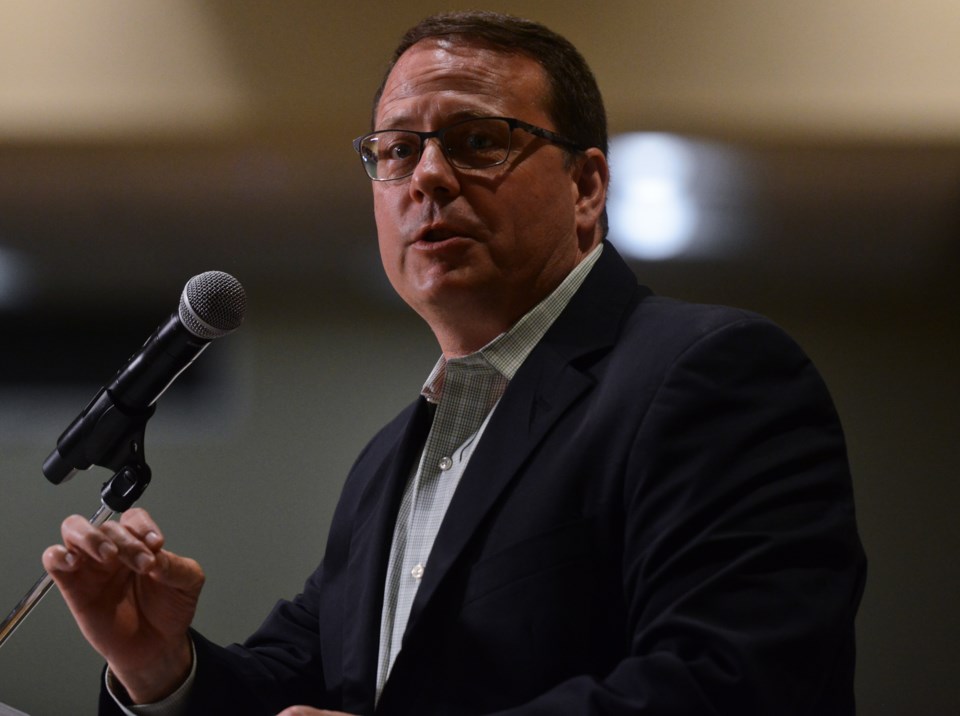The provincial vaccine distribution plan, environment and long-term care homes dominated the conversation during a recent telephone town hall hosted by Mike Schreiner.
"I appreciate the fact that a number of you are asking those types of questions," said the Ontario Green Party leader at the event on Wednesday evening, "because it strengthens my resolve to keep pushing at Queen's Park."
The purpose of the event was to give residents the opportunity to ask questions about Ontario's vaccine distribution plan and the upcoming spring budget.
George, a resident who is 85 and on oxygen, said he hasn't received a satisfactory answer from his healthcare provider on when he can expect a vaccine.
"I have been waiting and waiting, all this time and nothing," he said, "not even a letter to say go at this time to get the needle done.
"When are we supposed to get this?"
Recently, the provincial government announced Ontario will begin vaccinating adults over the age of 80 in March. Details about general public vaccination are not expected to be available until June.
Schreiner said Wellington-Dufferin-Guelph Public Health has been ahead of the curve on the vaccine rollout, already having pre-registration available for priority groups.
“Wellington Dufferin Guelph already has an appointment process in place,” he said, “even though the province isn’t going to have the province-wide database ready until March 15.”
He adds Dr. Nicola Mercer, WDG Public Health's chief medical officer, was a part of the decision to buy more freezer capacity to house 200,000 doses of the Pfizer vaccine, which could take in vaccines from other regions which may not be equipped to keep them.
“Our region, so Guelph, Wellington and Dufferin, would be able to obtain some of those vaccines to roll things out faster locally.”
After discussing the provincial vaccination rollout, Schreiner touched on ensuring essential workers, like personal support workers, don’t face barriers to access.
That came after a resident named Anita asked Schreiner how they could get more personal support workers in long-term care homes to take the vaccine.
With her husband in a long-term care home in Fergus, she said only 50 per cent of the workers opted to take the vaccination, resulting in two outbreaks because one of the workers tested positive for COVID.
"That plunges the whole nursing home into an outbreak which means they have to be confined into their room for 14 days," she says, "So how can we get that COVID into a requirement for healthcare workers?"
“There’s been a number of cases where PSWs in long-term care homes have said they are not getting the vaccine,” Schreiner mentioned within his anwser. “It’s not because they don’t want to, but because they couldn’t afford to take time off work to get the vaccine.”
Schreiner added this is why he is advocating for paid time off for low wage essential workers and paying those workers a living wage.
Concerns about essential workers prompted Schreiner to talk about advocating for a comprehensive work safety plan, which includes proper personal protective equipment and increased inspections of workplaces, with stricter penalties given to workplaces that don’t comply with the rules.
“If you look at where many of the outbreaks are happening, it is in workplaces for essential workers and vulnerable workers,” said Schreiner. “Everything from Amazon warehouses to processing facilities to long-term care homes and other essential workplaces.”
Along with these questions, Schreiner talked about some items he would be bringing up to the province in budget discussions, like Highway 413 and the 400 acres of the greenbelt at risk of being developed.
Sheila, a third resident, voiced her concerns to Schreiner about protecting the wetlands locally near Guelph Lake and the greenbelt along the highways.
"I really am about the wetlands, because I know how important it is," she said. "It's so important to our livelihood and our ecosystem is dependent on it, as well as the overflow."
In his response, Schreiner agreed wetlands are the most fiscally responsible approach to flood prevention.
“Wetlands save us money,” he said. “They protect us from flooding, they filter our water for a far cheaper price than a water treatment plant.”
He also mentioned the $6 billion going toward the project could be spent on other needed projects, like affordable housing initiatives in Guelph.
“We have some real concrete plans in place to eliminate homeless in Guelph, if we could just get some funding to support that,” he says, “and so I am going to continue to push for that at Queens Park.”
